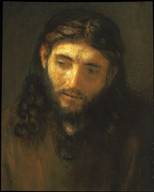Last night in church we read from Isaiah 58: "If you do away with the yoke of oppression, with the pointing finger and malicious talk, and if you spend yourselves on behalf of the hungry...then your light will rise in the darkness." Written, possibly, at a time when the Jewish exiles had returned home and were trying to make Israel great again, there were those who pointed the finger at the poor and homeless. Possibly they called them 'lazy scroungers'. Not so different from today when those struggling on benefits are accused in the same way by a right-wing media, and a resentful population.
We also read the story in John chapter 8 of Jesus and the woman caught in adultery. While all the 'righteous' Jewish men demanded that she should be stoned, pointing the finger of accusation against her, what did Jesus do? He didn't point his finger at the woman, even though she deserved it; he didn't even point his finger back at the Pharisees, even though they deserved it. Rather, he pointed his finger to the ground - to the sand where the 'river' of accusation runs dry. How much we can learn from that action: to discipline ourselves, perhaps as Jesus had learnt to do, not to point the finger, but to lower that accusing finger to the ground. It's the equivalent of 'counting to ten', but it opens the way for God's grace. "If anyone is without sin, let him be the first to throw a stone." The Pharisees understood they were in the wrong without a finger pointing at them; the woman understood that she had sinned, but was given a way out to a new life.
Some of our popular newspapers are very good at pointing the finger, and we see that pointing finger everywhere we look - whether it's Ukraine and Russia, or the football pitch, or the TV series 'Benefits Street'. This Lent I'm going to try to learn from Jesus to bend my pointing finger down and let the spirit of accusation and resentment that is so easily aroused flow into the ground.
Thursday, 6 March 2014
Subscribe to:
Post Comments (Atom)


No comments:
Post a Comment